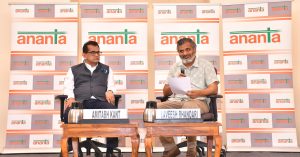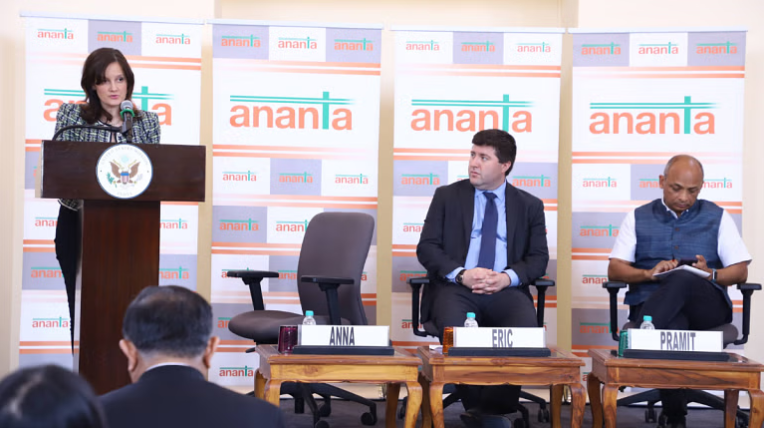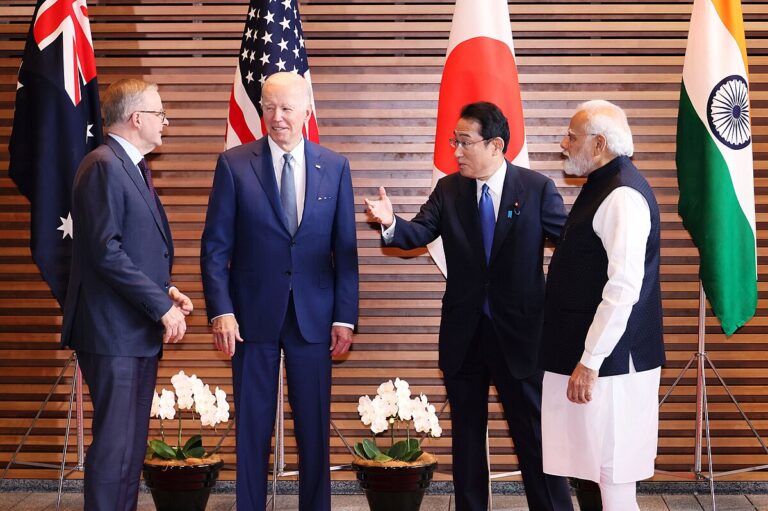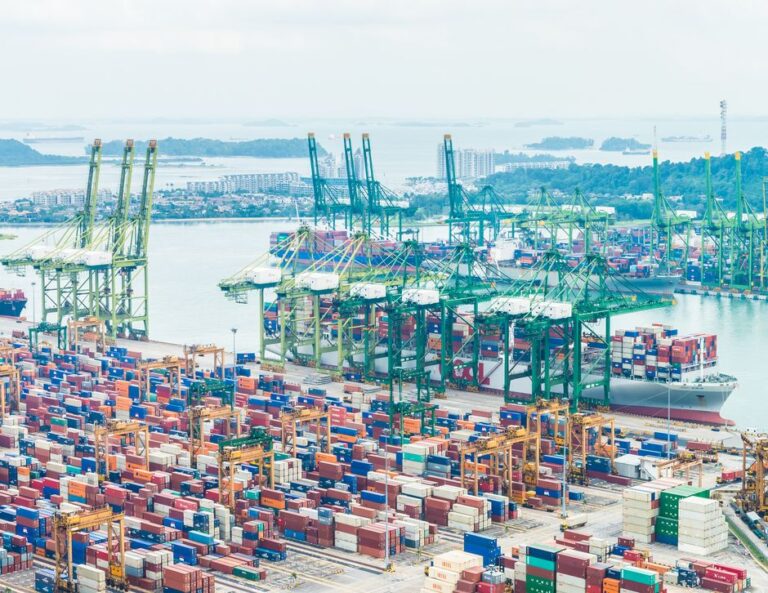A US-Russia Summit in prospect again
The Trump Administration launched a fresh initiative to resume summit-level discussions with Russia on bilateral and international issues. The stage for this was set by the conclusions of the Mueller Report on Russian Interference in the US Presidential Elections in 2016 which, while confirming Russian disinformation and social media operations and hackings of the Democratic Party emails, did not (according to the US Attorney General) find collusion of the Trump Campaign with the Russian government or obstruction of the investigation by the President.
President Trump set the ball rolling on May 3, with a telephone conversation with President Putin, which he described as “a very good talk”, particularly on Venezuela. He contradicted his Administration’s line by asserting that President Putin was “not looking at all to get involved in Venezuela, other than he’d like to see something positive happen”. In contrast, the Kremlin readout of the conversation said President Putin emphasized the right of Venezuelans to determine their own future, without external influences for regime change. Russia said this again publicly, while receiving President Maduro’s Foreign Minister in Moscow just a couple of days after the telephone conversation.
President Trump said they discussed a new arms control treaty to replace the current START (which lapses in 2021), in which China could also be included. He added that the Chinese were “quite excited” about this suggestion, when he put it to them – again a surprising assertion. In subsequent remarks, Administration officials said a new agreement should include “a broader range of weapon systems” and incorporate “an incentive system” that would encourage compliance by all parties. Russian official statements talk only of bilateral discussions on “strategic stability”. The Russian attitude is, as mentioned in some media reports, that if the Americans want to draw China into such a deal, it is for them to do the running for it.
President Trump said they discussed increasing bilateral trade, as also confirmed in the Kremlin readout. This subject had figured in their meeting in Helsinki in July 2018, when they had agreed to set up a joint working group of captains of business to generate initiatives to enhance economic cooperation. This was again mentioned in a Lavrov-Pompeo press conference. If it was a curious decision a year ago, it is even more so now, as the sanctions regime has become harsher since then.
The Presidential conversation was followed up by meetings of the two Foreign Ministers in Finland, on the margins of a Ministerial meeting of the Arctic Council, and in Sochi, where Secretary Pompeo also met with President Putin. The joint press conference of the two Foreign Ministers in Sochi brought out the difference between the Russian and American positions on the range of international issues, without becoming combative.
An example was FM Lavrov’s comments on the alleged Russian interference in the US Presidential elections. He revealed that from October 2016, when allegations of Russian cyber interference gathered momentum, and January 2017, when President Trump assumed office, there was a regular exchange of communications between the two countries (presumably through their intelligence agencies) on “cyberspace” issues. At the height of the furore in the US over Russian interference in the elections, the Russians had apparently wanted to make these exchanges public, to dispel “fabrications”, but the US Administration had not consented.
FM Lavrov also drew attention to a provision in America’s Ukraine Freedom Support Act (2014), which encroaches on Russian domestic affairs. It directs the US Secretary of State, directly or through organizations, to improve democratic governance in Russia and to strengthen its democratic institutions, with an annual allocation of US$ 20 million for this purpose.
Secretary Pompeo chose not to respond on these issues, but their raising did not seem to mar the good humour in which the press conference was conducted.
Meanwhile, mutual public recriminations continued in other forums. Secretary Pompeo and senior US Administration officials continued harsh criticism of Russian military presence in Venezuela, humanitarian impact of military operations in Syria’s Idlib province, violations of the Minsk agreements in Ukraine and Russia’s aggressive behaviour in the Arctic (seeking to control maritime traffic on the northern sea route). Russia’s Foreign Minister and its MFA criticised the Trump Administration’s regime change efforts in Venezuela and its actions threatening the territorial integrity of Syria.
Under cover of these hostile public exchanges, dialogue and cooperation were being quietly developed. The trilateral US-Russia-China dialogue of Special Envoys on Afghanistan appears to have been institutionalized (see Review, 4/19). The US State Department has confirmed that US-Russia consultations on North Korea have intensified. Russian FM Lavrov hinted at a potential Russian role in easing US-Iran tensions, including over the nuclear deal. Cooperation of counter-terrorism agencies on terrorist threats in both countries have apparently yielded concrete results in pre-empting terrorist activities.
The most significant indication of the US desire to resume dialogue was an unannounced visit (perhaps even more than one) of a senior Director of the US National Security Council to Moscow, where she met counterparts in the Russian NSC and a senior foreign policy aide to President Putin, triggering unconfirmed rumours of an impending “deal” on Ukraine and Venezuela.
The stage is thus set for the next meeting between Presidents Trump and Putin, on the margins of the G20 summit in Osaka in end-June, provided no new controversy erupts. On the last occasion, President Trump had called off their scheduled meeting on the margins of the G20 summit in Buenos Aires in November 2018, because of a skirmish between Russian and Ukrainian vessels in the Kerch strait that erupted just before the planned Summit (see Review, 11/18).
Franco-German effort to revive the Normandy format
The advent of a new Ukrainian President revived European efforts to re-engage with the “Minsk process”. President Macron and Chancellor Merkel had a telephonic discussion with President Putin, who (according to the Kremlin, and consistent with Russia’s constant refrain) emphasised the need to prioritise extending special status to the Donbas region, granting amnesty to the “freedom-fighters” and withdrawing forces and heavy weaponry to agreed positions. The French and German Foreign Ministers visited Kyiv for discussions with President Zelenskyy, who (according to the German Foreign Minister) confirmed that the Minsk agreements remain the basis of negotiations and that he was willing to work in the Normandy Format (of France, Germany, Ukraine and Russia).
The problem is that the Normandy format was pushed into the background after President Trump appointed a Special Envoy for Ukraine. There is no indication that the US is ready to relinquish this control over developments in Ukraine-Russia relations. At the joint press conference of the German Foreign Minister and the US Secretary of State in Berlin, a day after the former’s return from Kyiv, the German emphasised the importance of the Normandy format, President Zelenskyy’s support for it and the need for a functional dialogue with Russia. In his response, Secretary Pompeo ignored these points, noting only Germany’s cooperation on sanctions “to punish Russia for its aggression in Ukraine and its use of chemical weapons in the United Kingdom”.
Keeping the Astana partnership intact
Russia continued efforts to sustain the increasingly fragile Astana partnership from the divergent perspectives of Turkey, Iran and Syria, further complicated by American actions and Israeli interests.
The last major rebel hold-out of the Idlib governorate in Syria remained a thorn in the flesh of the Syrian government (and the Russians), with the al-Qaeda linked Hayat Tahrir al-Sham (HTS) continuing to launch missile attacks on surrounding Syrian areas, including the Russian air base at Khmeimim. The Russia-Turkey agreement on dealing with this threat (see Review, 4/19) was clearly not yielding the desired results. While exhorting Turkey to take more effective action (President Putin and FM Lavrov were in regular telephonic contact with their Turkish counterparts), the Russians also provided air cover for punitive strikes by the Syrian ground forces on the sources of the missile attacks. The offensive, however, stopped short of an all-out attack, both to protect Russia-Turkey relations from intolerable strain and to avoid excessive civilian casualties.
The Russians urged restraint on Turkish forces operating in Kurdish areas across the Syrian border. At the same time, Russia was conscious of American efforts to create a “safe zone” on the Syria-Turkey border – Secretary Pompeo told a media representative that the idea was to “reduce the risk of terrorists attacking from Syria into Turkey and reduce risks that Turkey will come south and disrupt Kurdish activity inside of Syria”. The Russian MFA accused the US, in partnership with France, of trying to settle Kurds in Arab areas east of the Euphrates, thereby moving towards carving out a Kurdish homeland separate from Syria. Media reports suggested that in view of these developments, Russia may encourage Turkey to wrest the north western town of Tel Rifaat from Kurdish fighters, so that they could put pressure on the US-backed, largely Kurdish, forces of the SDF. This might help extract Turkish acquiescence to the Russian-Syrian operations in Idlib.
Meanwhile, the Russian MFA noted satisfactory progress on the political track of the Syria settlement, with the office of the UN Secretary-General’s Special Envoy for Syria in direct touch with the Syrian government to finalize one portion of the list of names for the Syrian Constitutional Committee. The fact that the UN envoy is now dealing with the Syrian government indicates the sea change in the ground situation from even a year ago (see Review, 4/19).
Russia and Iran were in regular touch on the Syrian political settlement and on dealing with the US sanctions on Iran. Russia was active in consultations with the European signatories of the Iran nuclear deal (JCPOA). As indicated earlier, Russia hinted at some sort of a mediatory role in this.
A totally new development was the announcement by the White House on May 29 that the National Security Advisors of the US, Russia and Israel would meet in Jerusalem in June “to discuss regional security issues”; this meeting could have a significant impact on regional dynamics.
Putin congratulates Modi; MFA lauds relations with Pakistan
President Putin was one of the first foreign leaders to congratulate Prime Minister Modi on his re-election, sending a message and making a phone call on May 23, well before the final results were announced. His message paid the usual tributes to the friendship of the two peoples and the strength of the bilateral strategic partnership.
On the same day, the spokesperson of the Russian MFA spoke at length on the recent intensification of Russia’s contacts with Pakistan, describing the extensive cooperation “in international organisations, bilaterally, at the regional level and on such matters as security and counterterrorism”.























